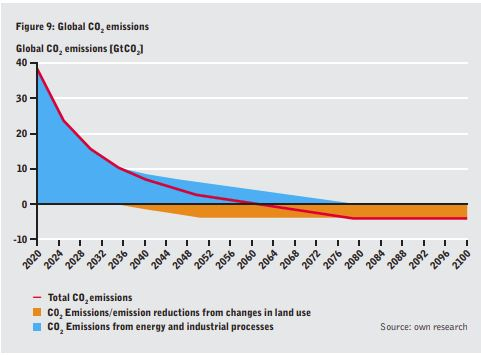
The right have attacked the Green New Deal on the grounds that it will hurt economic growth. In response, the left have defended it by saying it will *increase* growth. And maybe it will. But taking this approach is a bad strategy for a number of reasons:
1. If the GND *does* generate growth, that will drive aggregate resource use and energy demand up, and therefore make it paradoxically more difficult (and probably unfeasible) to decarbonize the economy in the short time we have left.
2. Clean energy infrastructure requires material extraction (for solar panels, wind turbines, batteries, etc). More energy demand means more extractivism, which will have significant social and ecological impacts - on global South communities in particular.
3. Climate change is not our only problem. More growth means more resource use, which means rising ecological impacts across all other planetary boundaries. (See: jasonhickel.org/s/Hickel-and-K…)
4. All sorts of regressive social and ecological policy is justified in the name of growth, including cuts to labour standards and environmental regulations. When we affirm growth as the ultimate objective, we play into the hands of neoliberals.
5. Finally, if the GND *doesn't* deliver growth, then it will have failed according to our own criteria, and will be attacked and rejected on those grounds.
For all these reasons, if we want our Green New Deal to be technologically feasible, socially just, and ecologically coherent, we need to abandon GDP growth as an objective and actively scale down aggregate energy use. We don't need growth; in fact, we can thrive without it.
Here's @r_mastini on this topic: inthesetimes.com/article/green-…
Here's the underlying paper: sciencedirect.com/science/articl…
And here's a short discussion: jasonhickel.org/blog/2020/10/1…
• • •
Missing some Tweet in this thread? You can try to
force a refresh



